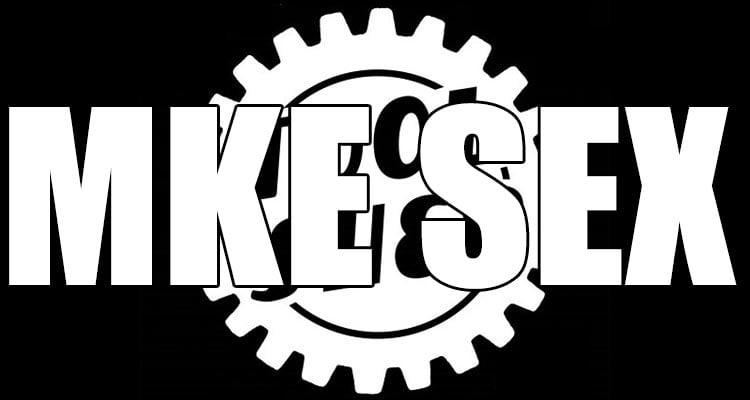Over brunch with a group of like-minded mothers recently, one woman asked what she should be telling her newly pubescent daughter about Wisconsin’s age of consent laws. This mom isn’t from America, and our strict laws regarding all things sexual are both a mystery and a disappointment to her. The conversation bounced around the table, with several mothers chiming in with anecdotes and advice. One of the other women, we’ll call her Jessica, said, “I would never consider the law when teaching my kids about sex.” She explained that she’s ensured that her kids have an ongoing sex-positive education about sexuality at home, and that she wouldn’t want her kids to be scared.
Fast-forward a couple of weeks to our next moms’ brunch. Jessica says, “Remember how I said I wouldn’t include Wisconsin’s archaic laws in my kids’ sex ed? Well…” She tells us that her 14-year-old daughter is mutually crushing on a young man who will be turning 18 soon. “She’ll be a sophomore next year, and he’ll be a senior. I dated seniors when I was a sophomore, and it was fine. But now I’m worried about them getting in trouble. What are the laws about sex and minors? How bad could this be?”
Oh, Jessica, it could be really bad. Because her daughter is 14, “sexual contact” with anyone is a Class C Felony. Once she turns 16, the potential charge is reduced to a Class A Misdemeanor.
In Wisconsin, the legal age of consent (the minimum age at which an individual is considered legally old enough to consent to sex) is 18 years old. The state defines “sexual contact” as intentional touching of someone’s “intimate parts” with any body part or object (clothed or unclothed), or intentional penile ejaculation, urination, or defecation anywhere on someone’s body (clothed or unclothed). Sexual intercourse is also prohibited for anyone under 18 years old, and is defined as cunnilingus, fellatio, genital or anal penetration (however slight), with or without ejaculation. These rules apply regardless of the orientation or gender of the kids, and both minors in a relationship can face charges.
Additionally, Wisconsin doesn’t have a close-in-age exemption. That means that two minors aren’t allowed to consent to sex with each other. And as soon as one partner turns 18, the potential charges are much steeper.
But wait, there’s more. If you, as the parent, know that your minor child is having sex, you’re also liable for prosecution. And if your child sends inappropriate photos of anyone to anyone else from an electronic device that you own, you are liable for the content of that message.
So what is a sex-positive parent supposed to do? We want to honor our kids’ agency, provide them with the relevant information, and give them space to make choices while there’s still a safety net. But we don’t want our families to face legal consequences for normal human sexual behavior.
To answer Jessica’s questions about her daughter’s budding relationship, I’ll share a few things I’ve learned parenting my own teenagers.
I’d establish dating guidelines immediately: curfew, transportation for the date, can they date one-on-one or do they need to start with group dates, etc. I’d make those rules clear to your daughter, and I’d go over them with the crush, too.
I’d start talking to her about safer sex, specifically birth control and STI prevention. Even if she’s not currently planning to have sex, once she starts dating it’s a decision she needs to be ready to make. I’d also pick up condoms and lube, and put them somewhere in the house. Let her know they’re there, and that you’ll keep them stocked.
I’d also be honest about the legal situation, especially since he’s about to turn 18. If it’s clear that their physical contact is always consensual, you won’t turn him in. But if they ever get caught by other adults or by the authorities, he could be in a world of trouble. You don’t have to say it to scare them, but just to be really clear about the consequences.
And if it seems like it’s serious enough that they’re considering sex (which can happen so fast), I’d talk to both of them about it. This can feel really uncomfortable, but it’s best to just open your mouth and say the words. Talk to them like they’re adults and make it clear that the main concern is their safety. Try to give them some alone time at the house periodically to reduce the likelihood of public sex (which adds an extra layer of danger, legally speaking).
Given the age difference, consider getting a copy of Learning Good Consent for each of them. It may be temporarily embarrassing, but it’s better than either of them not understanding consent. Many millennials know the ins and outs of consent better than older generations, but every time I present at a college or university, I get several students who tell me that no one has ever talked to them about consent.
This is some of the rockiest terrain you’ll likely cross as a parent, and every family will handle it differently. If you’re raising teens, you’re the expert on what’s right in your home. The best you can do is keep your heart open and your wits about you.
Curious about cunnilingus? Anxious about anal? Do you have questions about queefs or problems with your prostate? Lucky Tomaszek is the education coordinator at The Tool Shed: An Erotic Boutique, Milwaukee’s only mission-driven, education-focused sex toy store. Send her an email at [email protected] and she’ll get back to you with an answer.

